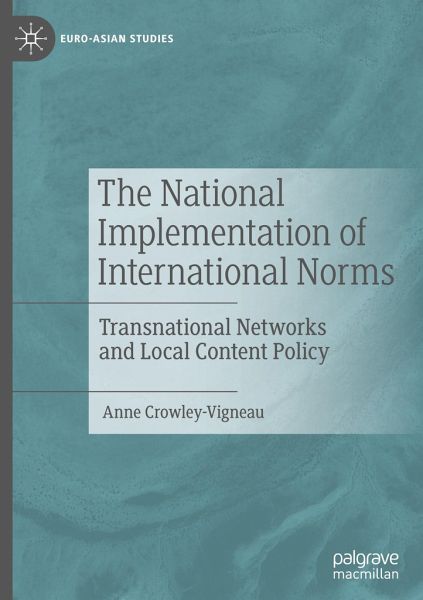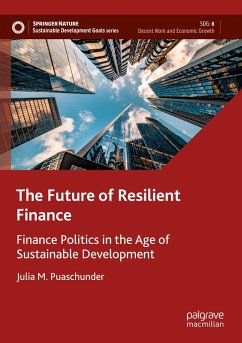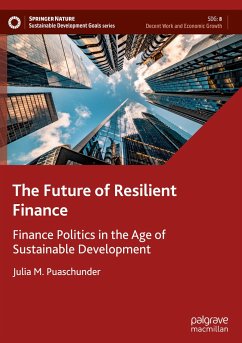
The National Implementation of International Norms
Transnational Networks and Local Content Policy
Versandkostenfrei!
Versandfertig in 6-10 Tagen
83,99 €
inkl. MwSt.
Weitere Ausgaben:

PAYBACK Punkte
42 °P sammeln!
This book explores the domestic adoption and implementation of international norms. The study of normative outcomes is expanded beyond traditional studies of value conflicts and localization to explore how transnational networks and local content policies affect an international norm's chances of reaching compliance on the ground. Empirical research from two case studies devoted to world class universities and the flaring of Associated Petroleum gas in Russia illustrate how the involvement of 'Transnational Expertise and Experience Networks' increases the chances norm implementation will be su...
This book explores the domestic adoption and implementation of international norms. The study of normative outcomes is expanded beyond traditional studies of value conflicts and localization to explore how transnational networks and local content policies affect an international norm's chances of reaching compliance on the ground. Empirical research from two case studies devoted to world class universities and the flaring of Associated Petroleum gas in Russia illustrate how the involvement of 'Transnational Expertise and Experience Networks' increases the chances norm implementation will be successful.
This book shows how networks help to adapt international norms to a local context by raising awareness and motivation levels, sharing best practices and past experience of implementation. It will be relevant to students, researchers and policymakers interested in international relations and economic transition.
This book shows how networks help to adapt international norms to a local context by raising awareness and motivation levels, sharing best practices and past experience of implementation. It will be relevant to students, researchers and policymakers interested in international relations and economic transition.












